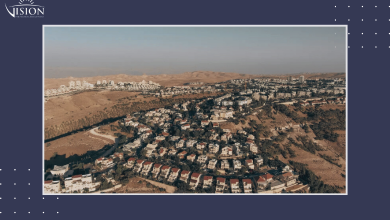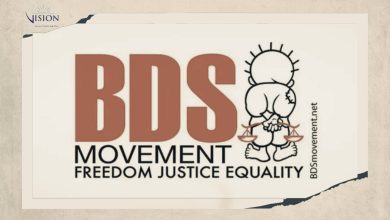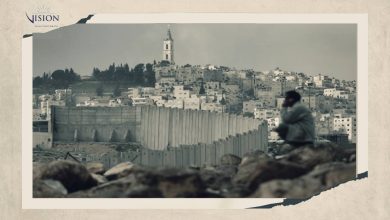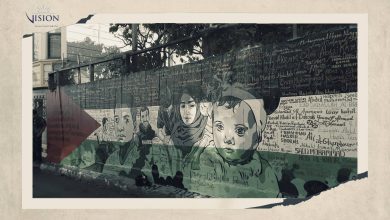(The Monthly Skimm (June-2021

Mohammed Hasan: Researcher in Political Science
Between One and Two States Solution
Klein and Tzoreff[1] believe that the complexity of executing a Palestinian-Israeli settlement is more pronounced today relative to the 1990s (Klein, 2021). Before commencing negotiations, both sides need to come to an internal agreement about the rules that govern decision making; In other words, the way wherein permanent agreements are made and refusals to execute written settlements are handled should be defined in advance.
David Makovesky [1] believes that a two state solution would be difficult to achieve and that a one state solution would guarantee endless bloodshed between the Israelis and Palestinians (Makovsky, 2021) . In a one state solution, one side would seek to dominate the other. This tendency toward domination is engendered by undemocratic traditions and a desire to preserve hard fought identities in the region.
The Tragedy of Israel’s Wars in Gaza
In Raphael Cohen’s (Cohen, 2021) analysis in the Rand blog entitled, “the Tragedy of Israel’s Wars in Gaza”, Cohen alluded to the effectiveness of Palestinian Resistance’s recent attack.. With Hamas and its fellow militia groups having a 30,000 rocket arsenal and Iron Dome’s success rate at 90%, hundreds of Hamas rockets still reached Israel. Hunkering down while waiting for Hamas to yield to international pressure was not an option for Israel, according to Cohen. Furthermore, the international community does not seem to have the will to curb Hamas and Palestinian militant groups so pressure from Israeli forces was deemed necessary.
The Failure of Israeli Public Diplomacy
In an article published in the Jerusalem Center for Public Affairs entitled Israel’s Unique Public Diplomacy Dilemma, Alan Baker3 focused on Israel’s public diplomacy failure (Baker, 2021). For various reasons, Israel failed to persuade Western and international media with a pro-Israeli narrative about the latest conflict. He further notes a negative change in public opinion towards Israel since 2019. Baker, a pro-Israeli writer, recommends that Israel uses Arab experts as well as prominent foreign military and legal experts rather than Israeli leaders, politicians, military personnel and legal experts whom may be perceived as propagandists to promote the Israeli narrative. . The Israeli narrative should highlight Hamas’s exploitation of children and civilians whom are used to shield legitimate military targets such as offensive tunnels and Hamas’s execution of eco-terrorism via incendiary balloons.
Raphael Cohen alluded to important statistical descriptions published by Gallup regarding American public attitude towards the conflict. Comparing 2019 with 2021, before and after the last confrontation between Hamas and Israel, there was no decline in the American public support of Israel. Nevertheless, there was a slight upward trend in American support of Palestinians; specifically, in 2019 the rate was 20%, in 2021 it is 25% (Cohen, 2021).
Yarden Vatikay[2] recommends the Israeli government to improve its strategic communications towards three levels: Israeli, international and regional (Vatikay, 2021). For him, strategic communications are as important as (and parallel too) military capabilities. This becomes most crucial after winning the cognitive war against Hamas and Israel’s success in projecting itself as the defender of Jerusalem.
The Economic Costs of the Last Confrontation
In the attempt to estimate the economic costs of the last round of hostilities, the Israeli writers Fadlon and Trajtenberg highlighted three types of economic costs; the direct military expense, the decrease of economic activities, and the property destruction caused by the rockets coming from Gaza (Trajtenberg, 2021).
They concluded that the economic cost of “Guardian of Wall” was less than the 2014 confrontation for a few reasons; first, the 11-days-duration was too short to incur a relatively great economic loss. Second, the Covid-19 pandemic prepared people for dealing with the emergency situations. However, damage to Israel’s image due its operation in Gaza is likely to engender subsequent economic costs. Both writers recommend that the Israeli government considers both economic and political dimensions in their cognitive campaigns.
How to Weaken Hamas’s Power in Gaza Strip
Oded Eran[3] used the verb “strive” in the context of Israel attempting to change the post war security, political, and economic realities in Gaza Strip in order to avoid a recurrence of what occurred in the region leading up to the last conflict (Eran, 2021). In order to do so, Israel must adopt a comprehensive and complex strategy for the resettlement of Gaza. This must include the integration of international, regional, and Palestinian mechanisms that aim to target a comprehensive political, economic-reconstruction and military security agenda in order to weaken Hamas’s power.
An Ineffective American Peacebuilding Approaches
Carol Kasbari[4] exposed the ineffectiveness of US’s recent Peacebuilding Acts approach to the Palestinian-Israeli conflict. The “Nita M. Lowey Middle East Partnership for Peace Act,” for example, provided 250$ million USD in order to facilitate the peace process. The Act was based on bolstering the Palestinian economy as a key element toward achieving peace. However, she considers the Act ineffective because it is disconnected from the domestic, political, social, cultural, economic processes and expectations. Furthermore, it tends to promote the inequalities which sustain the conflict (Kasbari, 2021)
Censoring the Pro-Palestinian Online Activism
Online platforms should reconsider their policies of censoring pro-Palestinian online activism. The platforms’ behavior does not reflect an anti-Palestinian agenda. Rather, it reflects ignorance, misunderstanding, and a general insensitivity to the nuances of the conflict; it results in inaccurate algorithms involving certain names and concepts. Al-Aqsa Mosque, for example, is identified as a Hamas affiliated establishment rather than the third holiest site in Islam (Agostinelli, 2021)[5].
Green Line Palestinians’ Involvement in the Clashes
Michael Milstein[6] pointed out that young Palestinians residing within the green line endure difficult circumstances and a general sense of alienation towards both the state and local leaderships. This dissatisfaction undergirded the last clash with Israeli Jews. The discontent is rooted in current life conditions among the youth, wherein, for example, 30% of 18-to-24 year-olds neither attend school nor go to work. Generally, the Israeli Arab sector of Israeli society experiences a sense of oppression resulting from, among other things, institutional discrimination, for example, prejudicial legislative initiatives such as “Basic Law: Israel as the Nation-State of the Jewish People” passed in 2018. The general frustration and rage in Arab society undoubtedly underlies the increase in crime and violence and it is indicative of intentional government neglect and disenfranchisement (Milstein, 2021).
Israel is Recommending to Exploit the Resignation of Bensouda to Avoid Criminal Investigation
Fatou Bensouda has resigned after nine years as the International Criminal Court’s Chief Prosecutor and was replaced by British attorney Karim Khan. The Israelis criticised Khan for opening up a war crimes investigation in light of alleged war crimes committed in June 2014 during Operation Protective Edge. Kahn was accused of adopting the Palestinian Narrative on the war for political reasons in a situation where the court has authority on the matter. Her successor Karim Khan may be persuaded to give low priority to open cases against Israel due to the intricacy of the legal proceedings. Thus, Baruch and Beeri, writers in the Institute of National Security Studies at Tel Aviv University recommend that Israeli leaders exploit the new arrangement and push Khan in a manner partial to Israeli interest (Beeri, 2021).
Hizbullah’s Approach to Fight Normalization
The Washington Institute has conducted a virtual forum to discuss Hizballah’s initiative to countervail the Abraham Accords by threatening to bring criminal charges against Lebanese citizens who interact with Israelis. This includes expatriates who reside in countries with normalized relations with Israel (Koteich, 2021). The participants of the virtual forum discussed how broadly written anti-normalization laws can affect the Lebanese abroad particularly those who reside in the UAE, where 300,000 Lebanese live and work in the country, some of them occupying high positions and would likely be negatively affected as they would likely be forced to engage with Israeli companies. Anti-normalization laws over reach and are misused as a political weapon to silence the opponents of Hizballah.
References:
Makovsky, D. (2021). A One-State Solution Is Unworkable. Retrieved from Washington Institute: https://www.washingtoninstitute.org/policy-analysis/one-state-solution-unworkable
Koteich, N. (2021). Anti-Normalization Laws: A Powerful Weapon in the Fight Against Peace . Retrieved from Washington Institute: https://www.washingtoninstitute.org/policy-analysis/anti-normalization-laws-powerful-weapon-fight-against-peace
Milstein, M. (2021). The Crisis in Relations Between Jews and Arabs in Israel: Can the Rift Be Healed? . Retrieved from The Washington Institute: https://www.washingtoninstitute.org/policy-analysis/crisis-relations-between-jews-and-arabs-israel-can-rift-be-healed
Cohen, R. S. (2021). The Real Tragedy of Israel’s Wars in Gaza. Retrieved from RAND Corporation : https://www.rand.org/blog/2021/06/the-real-tragedy-of-israels-wars-in-gaza.html
Agostinelli, J. (2021). The “Palestinian exception”: Social media censorship of Palestinian activism. Retrieved from Middle East Institute: https://www.mei.edu/blog/palestinian-exception-social-media-censorship-palestinian-activism
Kasbari, C. (2021). The Trilemma of Power, Aid, and Peacebuilding in the Israeli-Palestinian Context. Retrieved from Middle East Institute: https://www.mei.edu/publications/trilemma-power-aid-and-peacebuilding-israeli-palestinian-context
Beeri, O. (2021). The Changing of the Guard at the International Criminal Court: Prospects for Israel. Retrieved from The Institute For International Security Studies: https://www.inss.org.il/publication/icc-investigation/
Vatikay, Y. (2021). National Strategic Communications: Lessons from Operation Guardian of the Walls. Retrieved from The Institute for National Security Studies : https://www.inss.org.il/publication/guardian-of-the-walls-strategic-communications/
Klein, M. (2021). Operation Guardian of the Walls: Moving the Conflict from the Periphery to Jerusalem and the Heart of the Country? Retrieved from The Institue of National Security Studies: https://www.inss.org.il/publication/guaerdian-of-the-walls-and-the-israeli-palestinian-conflict/
Trajtenberg, M. (2021). The Economic Costs of Operation Guardian of the Walls. Retrieved from the Institute of National Security Studies : https://www.inss.org.il/publication/guardian-of-the-walls-costs/
Baker, A. (2021). Israel’s Unique Public Diplomacy Dilemma. Retrieved from Jerusalem Center for Public Affairs: https://jcpa.org/article/israels-unique-public-diplomacy-dilemma/
Eran, O. (2021). An Arrangement in the Gaza Strip: The International Dimension. Retrieved from The Institute for National Security Studies: https://www.inss.org.il/publication/guardian-of-the-walls-international-arena/
[1] David Makovsky is the Ziegler distinguished fellow at The Washington Institute and director of the Koret Project on Arab-Israel Relations.
[2] Strategic Communications Expert, Former Head of the National Information Directorate, Prime Minister’s Office- Israel.
[3] Senior research fellow at the Institute for National Security Studies at Tel Aviv University.
[4] Carol Daniel Kasbari, Ph.D, is a social scientist with an interdisciplinary doctoral degree in conflict analysis and resolution with 20+ years of experience designing and leading programs in the field of conflict mitigation, peacebuilding, advocacy, and nonviolent resistance
[5] Jessica Agostinelli manages the programs team and supports the work of the Track II Dialogues Initiative in Middle East Institute
[6] Michael Milstein is the Head of the Palestinian Studies Forum at the Moshe Dayan Center for Middle Eastern and African Studies





